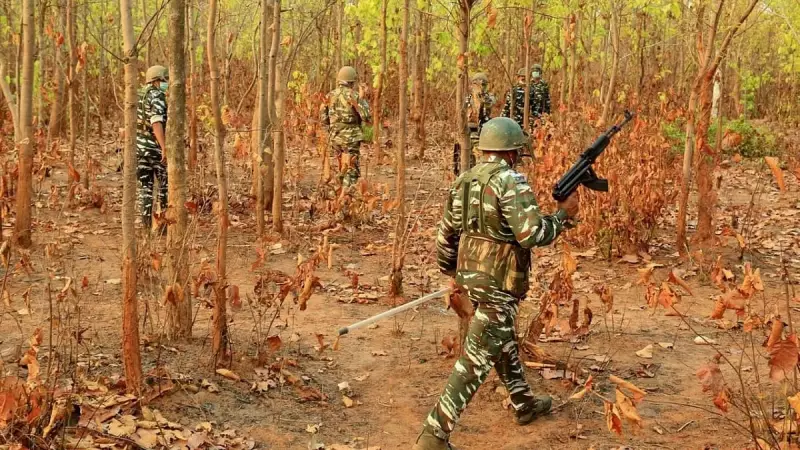
In a dramatic turn of events that signals shifting dynamics in Chhattisgarh's long-standing conflict, a prominent Maoist leader has publicly called upon his comrades to abandon armed struggle and surrender to authorities.
Senior Commander Breaks Ranks
Ravindra Sahu, recognized as a senior member within the Maoist hierarchy operating in the Bastar region, has issued a heartfelt appeal through audio messages, urging fellow cadres to recognize the changing reality on the ground. The veteran insurgent, who carries a bounty of ₹8 lakh on his head, emphasized that continuing the armed movement has become increasingly untenable.
Security Forces Gain Strategic Advantage
The surrender appeal comes amid what security analysts describe as a decisive shift in the counter-insurgency campaign. Security forces comprising CRPF and state police units have significantly intensified operations across Maoist-affected districts, particularly in Sukma, Bijapur, and Dantewada.
"The security grid has never been stronger," noted a senior police official familiar with the operations. "Our intelligence network has expanded, operational coordination has improved, and local communities are increasingly cooperating with authorities."
Multiple Factors Driving the Change
Several key developments have contributed to the current scenario:
- Enhanced Security Operations: Strategic and targeted missions have disrupted Maoist supply chains and communication networks
- Infrastructure Development: Road construction and mobile network expansion have reduced the isolation of remote areas
- Surrender Policies: Government rehabilitation programs are attracting disillusioned cadres
- Local Support Erosion: Diminishing popular support in traditional Maoist strongholds
Impact on Maoist Operations
The intensified security pressure has yielded tangible results. Security forces have successfully neutralized several Maoist camps and recovered significant quantities of arms and explosives in recent months. More importantly, the insurgents' ability to move freely and execute large-scale attacks has been substantially curtailed.
Intelligence reports suggest growing disillusionment within Maoist ranks, with many cadres reportedly questioning the movement's direction and viability.
Government's Rehabilitation Push
Chhattisgarh authorities have welcomed Sahu's appeal, viewing it as validation of their comprehensive approach combining security operations with development initiatives. The state's surrender and rehabilitation policy offers former insurgents financial assistance, vocational training, and support for reintegration into mainstream society.
Security experts believe this development could trigger a cascade effect, potentially encouraging other Maoist cadres to reconsider their allegiance to the armed movement.
As the security establishment consolidates its gains, all eyes remain on the conflict zones of Chhattisgarh to see if this marks the beginning of the end for one of India's most persistent internal security challenges.





